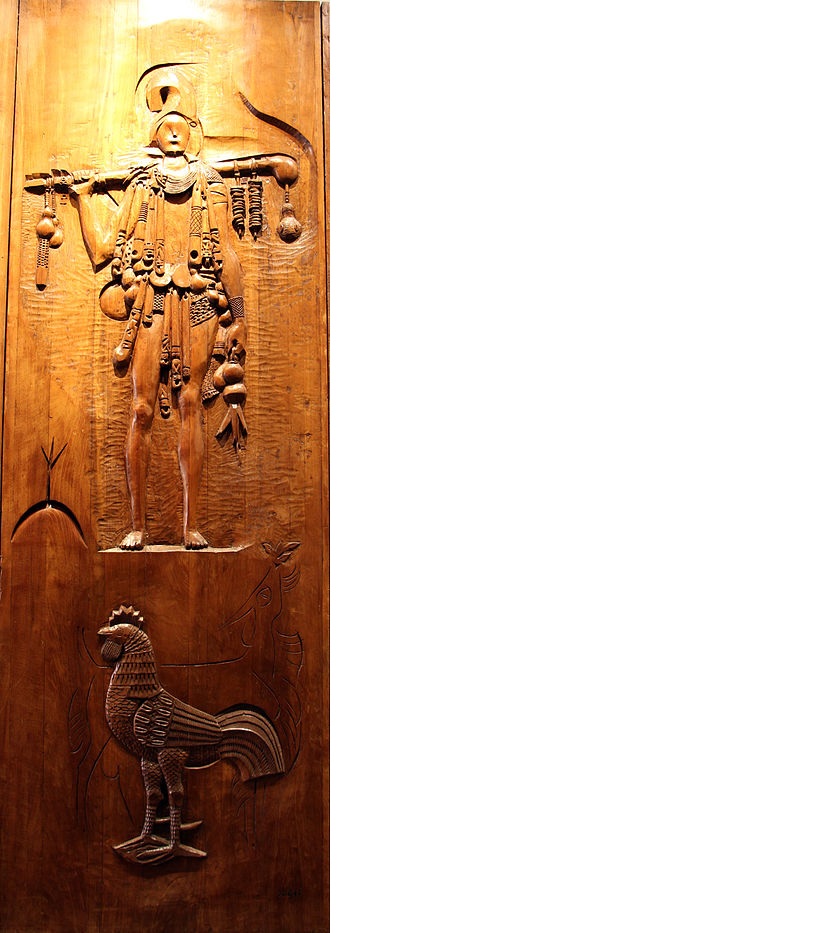By Abdulbaqi Olawale Sulaemon

Èṣù is a complex and controversial figure in the Yoruba mythology and opinions about his nature varies depending on cultural context and personal beliefs.
Èṣù is mostly referred to as the messenger of the oracle who is responsible for communicating between the gods and humanity, he takes sacrifices to the oracle and bringing the oracles command to men, acting under the oracle’s order, Èṣù punishes the wicked.
In a battle with Death Èṣù lost his club, but Orunmila recovered it for him and this created an agreement between these two divinities. But Èṣù is also important in his own right, and he is greatly feared for the evil that he can do. He sometimes compels men to evildoing. Èṣù is also looked upon as protector and even benevolent, he is sometimes called “father.” He is said to have two hundred names some of which are Ẹlẹ́jẹlú, Olúlànà, Ọbasìn, Láarúmọ̀, Ajọ́ńgọ́lọ̀, Ọba Ọ̀dàrà, Onílé Oríta, Ẹlẹ́gbára Ọ̀gọ, Olóògùn Àjíṣà, Láàlú Ògiri Òkò, Láàlù Bara Ẹlẹ́jọ́, Láaróyè Ẹbọra tí jẹ́ Látọpa amongst others.
Èṣù is a personification of Mischief he is the one who teaches that there are always two sides or more to every issue. That is why it is believed that Èṣù is so necessary to have an ordered life.Esu is like an impartial judge who mediates between the benevolent and malevolent supernatural powers. He is able to do this by using a sacrifice provided by a humans.
Ritual foods offered to Èṣù include palm oil, beans, corn, Male birds, four-legged and other animals are offered as sacrifice to Èṣù. In each offering made to an òrìṣà, a part of the food is separated and dedicated to Èṣù.
The mistranslation of Èṣù as Satan or Devil started from the time of the first English translations of Yorùbá words in the mid nineteenth century, Èṣù has been rendered as “devil” or “satan”.The first known instance of this came from Samuel Ajayi Crowther’s “Vocabulary of the Yoruba” (1842) where his entries for “Satan” and “devil” had Eshu in English.
Subsequent dictionaries over the years have followed suit, permeating popular culture and Yorùbá societies as well. Lately, many online campaigns have been set up to protest this, and many activists have worked to correct it. There have also been quite a number of academic work examining the mistranslation.
The translation on Google Translate took up the same earlier mistranslations. This led to a number of online campaigns until 2016 when Nigerian linguist and writer Kola Tubosun, then an employee at Google, first changed it back to less derogatory connotations. When the changes were reverted, he changed them again in 2019.The translation for Èṣù to English now remains “Èṣù” while “devil” and “satan” translate to “bìlísì” and “sàtánì” respectively.
